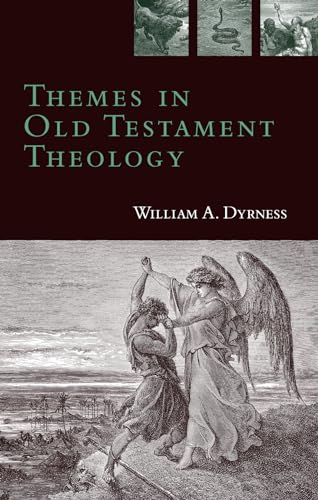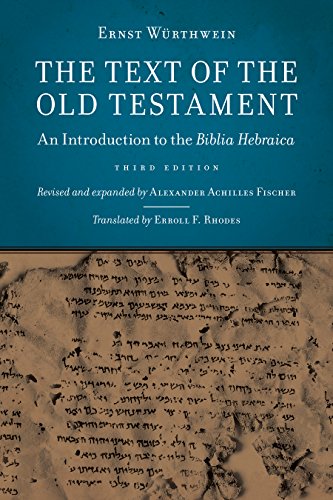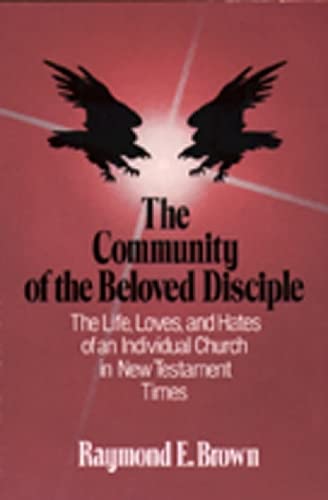This is an important book, though more in what it attempts than in what it directly achieves. Ebeling is concerned about the division, independence, and even mutual suspicion which exists among the various theological disciplines, and his book, which began life as an introductory course for theological students, is a wide-ranging and scholarly attempt to survey the major theological and related non-theological fields, map out their mutual relationships, and set them in a particular order which will permit an overall integration and unity. He begins, perhaps controversially, with New Testament Studies, and then moves on through Old Testament, the Study of Religion, Philosophy and Church History to the Natural Sciences, Humanities, and Social Sciences returning to the ostensibly theological sphere by way of Practical Theology, Dogmatics, Ethics, and finally Fundamental Theology. This last, borrowed in title from Roman Catholic theology, is Ebeling’s proposal for a new discipline whose task would involve examining the basic truth-claim of theology, which in turn would imply an exploration both of the unity behind all the divisions and apparent contradictions between and within the various disciplines, and also of the fundamental compulsion towards theology which arises out of man’s experience of God, not excluding the theologian’s own religious experience.
The whole exposition reveals Ebeling as a writer of wide cultural sensitivity and possessed of an admirable grasp of the ‘state of play’ in all the fields he surveys.
While no doubt the roots of theological specialization and division lie deeply imbedded in our culture, and affect other scholarly spheres besides theology, as long as the latter continues to lay claim to the vision of ultimate truth, the lack of coherence, and even sometimes the absence of proper respect and trust between disciplines are features to be resisted, and in this sense Ebeling’s book is surely timely.
Anyone hoping for a simple blueprint from Ebeling will however be disappointed, and here we confront the limitations of the book. It is deeply rooted in the German university scene and, as a study of methodology inevitably must, affords the author every opportunity to indulge his native teutonic love of theoretical definitions and formal distinctions. Indeed at times the cataract of theoretical concepts with their invariable qualifying counter-points begin to exercise a Lorelei-like fascination which threatens to suck the reader beneath the waves of utter incomprehension. In respectful dissent from the claim of the dust-jacket, this is not a book to thrust into the hands of a theological L-driver!
This is not to disavow the presence of illuminating insights and even quotable observations, such as the comment directed against the uncritical adoption into the theological sphere of the results of enquiries in the social sciences, ‘Only the “long march” through thirsty stretches of intensive specialized work leads to a competent judgment’ (p. 96); or the observation, which many an exasperated theological student will identify with, ‘Today practical theology is faced particularly with the danger of becoming a playground for theological fashion designers and their experiments’ (p. 123).
The compression of the material into lecture-length chapters means that in many cases distinctions are neither fully delineated nor adequately justified; and there would be detailed reservations by specialists in the various fields at some of Ebeling’s generalizations and judgments.
Although the Bible is referred to from time to time there is significant absence of any explicit citation of Scripture, nor is there a single substantive reference to the Holy Spirit, a revealing ommission for a book concerned with theological method and truth-claims. Barth’s dismissal of any substantial links between theology and allied non-theological disciplines is predictably, and perhaps properly, criticized (cf. p. 105), but there appears a singular lack of awareness of, or sympathy with, the kind of problem which Barth’s dismissal highlighted.
The appendix containing Luther’s memorable counsel on the study of theology stands in a number of respects in striking contrast to what has gone before. Here the argument falls clearly under the control of the exegesis of Scripture and direct appeal is made to the ministry of the blessed Spirit of truth. And here too there appears (and is this altogether unrelated to these other points of contrast?) a sheer human warmth and liveliness which, for all Ebeling’s erudition and breadth of perspective, one missed earlier.
In conclusion it is probably salutory to reflect on the evangelical theological scene in the light of the width of vision of this book. The last substantial attempt to articulate a total theological view from explicitly evangelical presuppositions was probably that of Abraham Kuyper’s Theological Encyclopedia of 1894, and one recalls the claim that B. B. Warfield could have occupied with rare distinction any one of the theological chairs at Princeton in his time. No doubt it is proper to remind ourselves that a totally integrated theological vision belongs to the theologia gloriae when we ‘shall know even as now we are known’, and salutory too no doubt to warn each other of the dangers of excessive system-building; but surely there is some place for evangelicals as much as, if not more than, any others, making the effort to move towards that vision in the here and now. Or must we conclude that in our present mediocrity, or our bondage to the Babylonian captivity of our culture, we have neither the stomach nor the depth of scholarship to attempt it? This reviewer looks forward to being proved mistaken.
Bruce Milne
Spurgeon’s College, London






